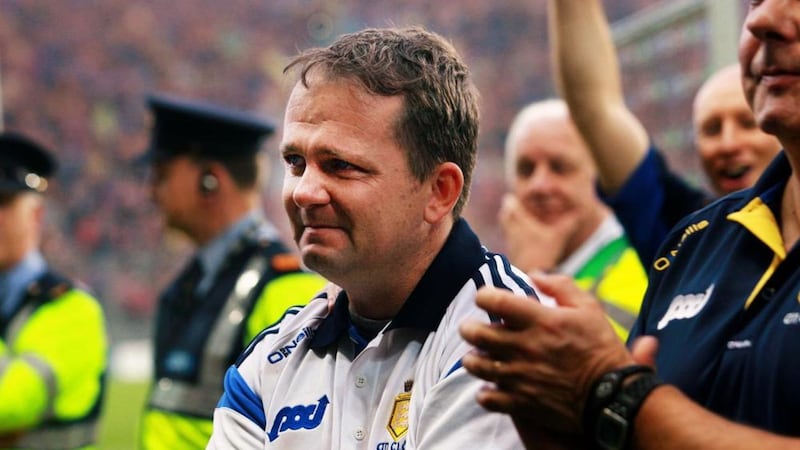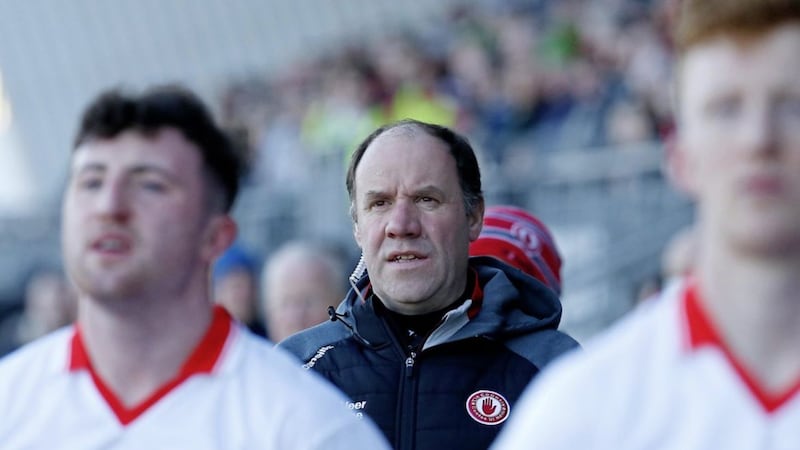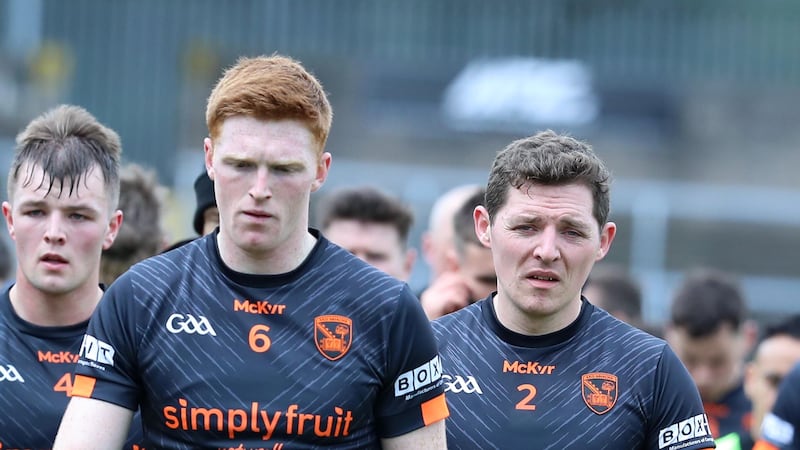IN four years at the helm, Davy Fitzgerald guided Clare out of the doldrums to a first All-Ireland in 18 years and a first National League in 38.
He was always destined to be divisive. Even when he was playing, there was those who loved the wide-eyed, fist-pumping, length-of-the-pitch-after-a-penalty-sprinting antics, and those who loathed them.
Fitzgerald spent his entire career as both player and manager with his head permanently above the parapet. He dodged some bullets before his own men eventually shot him.
“A minority” of players was enough. His time in charge has not been short of incident, but all the sagas seemed to be off the field in the last three years.
They haven’t made it back to an All-Ireland semi-final since 2014, and they haven’t won a Munster Championship match since. A young team that wins an All-Ireland has to have greater ambitions than that.
I don’t profess to know Davy Fitzgerald personally, but I can imagine why some of his players would have been happy to get together and force him out of the dugout.
The wide-eyed, raging passion still has its place in the game, but it’s been marginalised. The ability to motivate a team on the day of the match represents just the smallest strand of the DNA required to win big names.
His “we’re just the little fish” mentality permeated his reign. A siege mentality will only last so long before someone goes out into the real world, realises that not everyone is out to get them and reports back.
Take last weekend’s drawn All-Ireland football final. Mayo were the team that brought the aggression and Dublin never really matched it.
But what good would that aggression have been if Stephen Rochford and Tony McEntee hadn’t the sense to get their match-ups and their gameplan right?
What sense beating the doors and walls of Croke Park and screaming murder and making wild promises to then go out and find yourself out of air after ten minutes, two points down and realising you have no plan to actually go and win the game.
Motivation remains hugely important, but players not motivated to go out now and kill the man beside them or cover every inch of the grass that they can.
If they believe in the gameplan they’ve been given, then they’re motivated to carry it out. And when they see that it’s working, as Mayo did last weekend, then it fuels the motivation for 70 minutes.
The Mayo players made a huge rod for their own backs 12 months ago but even if they lose on Saturday, they’ll have done enough to stave off any public lashings with it.
The modern player is a discerning creature. A demanding one, too. And aren’t they entitled to be, with the effort they put in?
When Dublin were five points down at half-time to Kerry a few weeks ago, the signs of panic were evident on the field. But the players afterwards spoke of the oasis of calm that was their changing room.
Ciarán Kilkenny referenced “the process” in a post-match interview. The nation cringed. “Did he actually just say that?” was my own reaction.
But ‘the process’ was why Dublin came from five points down to win. They had a plan. A solid, structured, definable path to victory.
That is the path that modern players want to walk. Old-school managers can ‘pah’ all they like at that, but this is a new era.
There’s certainly an argument to be made that young players now think they know too much. In any club, you can see evidence of that. Players have certainly never been more powerful.
Now if that had been the case 22 years ago, Derry would have held on to the late, great Eamonn Coleman.
In our county’s wisdom, they sacked the only man ever to bring Sam Maguire back to the county a year later.
It was far from player power that forced him out in 1994. The Derry players loved him.
Fergal McCusker said in an interview a few years ago that no-one had ever explained to the players why Coleman had been sacked.
Kieran McKeever spoke of how it ripped the heart out of the team. If player power had existed in 1994, Derry might have held on to their manager and made full use of its golden generation of players.
Instead, they retired with a fistful of regrets rather than a fistful of medals.
It may be the opposing action but that is what those Clare players are trying to avoid. It’s what the Mayo players tried to avoid when they pushed Pat Holmes and Noel Connelly out the door last autumn. The same with Galway hurlers and Anthony Cunningham.
What was once a most un-GAA act is rapidly becoming commonplace.
Even at club level, managers are under more pressure to produce results than ever (though some can’t really feel it because of the weight of the wad of ‘diesel money’ in their hip pocket).
A generation of ex-players with big reputations saw a gravy train running down the hill and they sprinted after it. A great player does not necessarily a great manager make. But boy, was it handy money.
The club circuit is saturated with them.
It’s very hard to play under someone you don’t believe in. Harder still to play for someone you don’t respect. So why shouldn’t players have the right to force change?
It can be as easy to blame a manager at times as it is to blame a referee, but most will know a good thing when they see it, and not let it go.
The bluffers are thus discovering that no matter how good a player you were, that doesn’t guarantee you respect as a manager. That has to be earned.
In any other generation, Davy Fitzgerald would have earned the total respect of everyone in Clare. He took Waterford to an All-Ireland final and his native county to an All-Ireland title. Maybe some day the history books will swing it back in his favour.
But the Clare players and Mayo players and Galway players that wanted a better future for themselves, a stronger legacy, had the right to act.
It’s only right that players who give so much to an amateur game have the right to shape their own sporting destiny.









